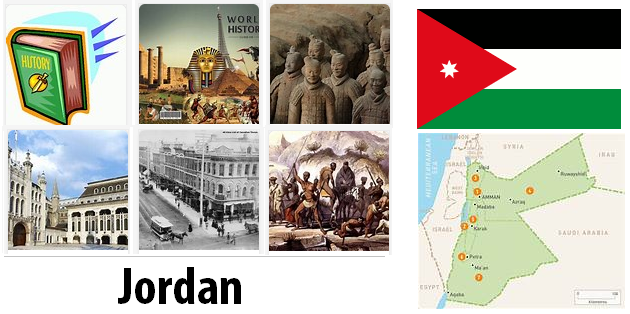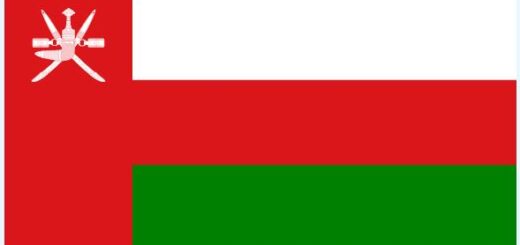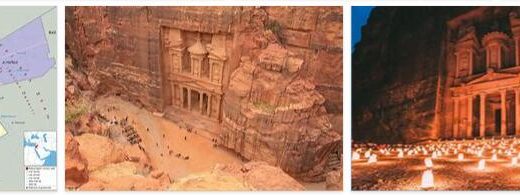Jordan Recent History
This land has a great importance for Catholics because the Holy Places and the oldest part of Jerusalem are located in Jordanian territory. And right here come from all over the world those pilgrims who want to visit the ruins of the ancient cities of which the Holy Scriptures speak.
According to Abbreviationfinder, an acronym site which also features history of Jordan, Jordan is a new state, born in April 1950, from the merger of central Palestine with Transjordan. Before this date, this very small territory was divided between the neighboring states and therefore followed the various historical events.
In 1920 when the Turkish empire fell apart, some Palestinian regions were subjected to a British mandate and then in 1946 they gained independence with the name of Transjordan. This new Arab state, established with territories south of Syria, west of Palestine, crossed by a portion of the railway from Cairo to Baghdad, connected the state of Hegiaz to that of Iraq.
On April 25, 1920, the League of Nations assigned the “mandate for Palestine and Transjordan” to Great Britain, which was later confirmed also in 1924. Due to the incompatibility of the Arabs with the Jews, the country was organized as an “autonomous state” on 26 May 1923, under Emir Abdullah ibn Hussein, son of the sheriff of Mecca.
On February 20, 1948 he was recognized independent, but under the military and financial control of Great Britain. The following year the Arab-Jewish conflicts began, which led to the clear separation of Israel.
On May 25, 1946 the full independence and sovereignty of Transjordan was proclaimed; Abdullah was crowned first king of the new state. Transjordan was the political center of the Arab League. From 19 May 1949 it was called the Hashemite Kingdom of Jordan, or more briefly Jordan.
During Abdullah’s reign (belonging to a dynasty descending from Muhammad), Jordan carried out a policy aimed at widening its borders towards Palestine and affirming its political, military and moral supremacy over the other Arab states in the Middle East. In this he had the support of Great Britain while clashing, naturally, with the state of Israel.
The assassination of the pro-British Abdullah (20 July 1951), to which his son Talal I succeeded, revealed the rise of an uncompromising nationalistic spirit and the consequent aspiration to eliminate British interference.
But on 12 August 1952 King Talal, after a long period of absence from the kingdom for health reasons, was deposed by the Parliament of Amman and was succeeded by the young son Huseyn, crowned in May 1953. In October a new incident broke out with Israel, for the Israeli attack on three Jordanian border villages. The government of Jordan forbade people of Jewish origin of any nationality from entering its territory.
In February 1958, Jordan formed the Arab Union with Iraq to counter Egyptian expansionist policy by Nasser.
On July 14 of the same year, a coup took place in Iraq that seemed to involve Jordan as well. King Huseyn with his skill and courage faced the situation, solicited British military aid, which arrived, and strengthened the wavering throne.
In the winter of 1960/61 the kingdom of Jordan was still alive and on solid foundations. However, a state of tension remained with Egypt and this conflict dragged on until 1964.
Inside, the young king’s policy brought calm and stability. Outside, however, he had some difficulties in 1966 from the crisis with Syria, which was supported by both Egypt and the Soviet Union. Huseyn had the support of Saudi Arabia and the United States. And when Jordan broke relations with the Palestine Liberation Organization, Syria invited the Jordanian people to rebel against the king.
As a conflict with Israel approached, however, Syria and Jordan reassembled their diatribes to make a united front. And in 1967 Jordan itself was battered out of the war because it suffered the loss of all the territories west of the Jordan. Above all, it had to welcome thousands of refugees.
In the period 1968/70 Jordan was the scene of armed clashes and reprisals from Israel. There was also an attack on the person of Huseyn and terrorist actions led to the hijacking and destruction of 4 western planes by the Palestine Liberation Front which, in 1971, was expelled from Jordanian territory. These attacks sparked huge international protests.
Meanwhile Huseyn worked to strengthen his position within the country and in 1972 he became president of the Arab National Union. In 1974 he then had to accept the presence of the PLO (Organization for the Liberation of Palestine), as the only entity responsible for the administration of any liberated territories.
In the early months of 1975 there was a rumor that another attack on the king was in preparation and in 1976 Jordan intensified its political action in collaboration with Syria.
And while it was all aimed at regaining the territories lost in 1967, Jordan found itself in difficulty in 1979 due to the peace agreement between Israel and Egypt and with the agreed hypothesis of autonomy of the West Bank. So Huseyn made a rapprochement with the PLO and tried to involve the United States in the formation of a Jordanian-Palestinian state that would force Israel to surrender the famous territories. For this reason, the king met Arafat and then also sought the endorsement of the Soviet Union by visiting Moscow in May 1981. On 11 February 1985 Huseyn and Arafat entered into an agreement which, however, the following year was dissolved because the bargains with the United States they did not do more and, however, Tel-Aviv did not grant his availability.
In 1988 Jordan officially renounced sovereignty over those territories and the Gaza Strip, leaving the Organization for the Liberation of Palestine responsible for any event.
But he cooperated with the Arab world and sided with Iraq in the conflict with Iran and in 1989 joined the Arab Cooperation Council with Egypt, Iraq and Northern Yemen.
But the economic situation, like the socio-political one, showed some instability. In April 1989 there was a strong wave of protests and riots just when King Huseyn was in Washington in talks with G. Bush, president of the United States. On the occasion, Prime Minister Zaid Rifa’i was also deposed and the new Zaid Ben Sakir, adviser for military affairs, former head of the armed forces, was placed in office.
During the Gulf War, Jordan remained neutral. This allowed his presence at the Arab-Israeli Peace Conference promoted by the United States in October 1991. In April 1992 King Huseyn abolished all the laws that had imposed martial law already on the occasion of the 1967 war. Furthermore, for the purpose of do not miss the possibility of mediation, the monarchy intensified relations with the United States by loosening those with Iraq, and also strengthened those with Israel especially in 1993 after the signing of the “Declaration of Principles”, precisely between Israel and the Organization for the Liberation of Palestine.
In October 1994 a peace treaty was signed with Israel which recognized Jordan’s special role of protection against the Holy Places in Jerusalem.
On the other hand, those with the Organization for the Liberation of Palestine that feared suffering an elimination of their sovereignty over the city deteriorated. In 1995, relations returned to good as Jordan recognized the organization’s sovereignty over east Jerusalem. A commercial agreement was also agreed with Israel while relations with Saudi Arabia improved and relations with the United States became privileged.
In August 1996, despite Huseyn’s shrewd policy, there was a strong popular protest in Karak, 90 km away. south of the capital Amman, against the rise in the price of bread. And this protest had also been fueled by the Islamic opposition who did not welcome the intensified good relations with Israel, especially after Netanyahu had developed a right-wing government there.
In November 1997 the political elections were won by independent candidates linked to the king. During 1998 Syria also joined in the criticism against relations with Israel.
On February 7, 1999, after Huseyn’s death, his son Abdallah II, appointed as successor by the same father, ascended the throne.




